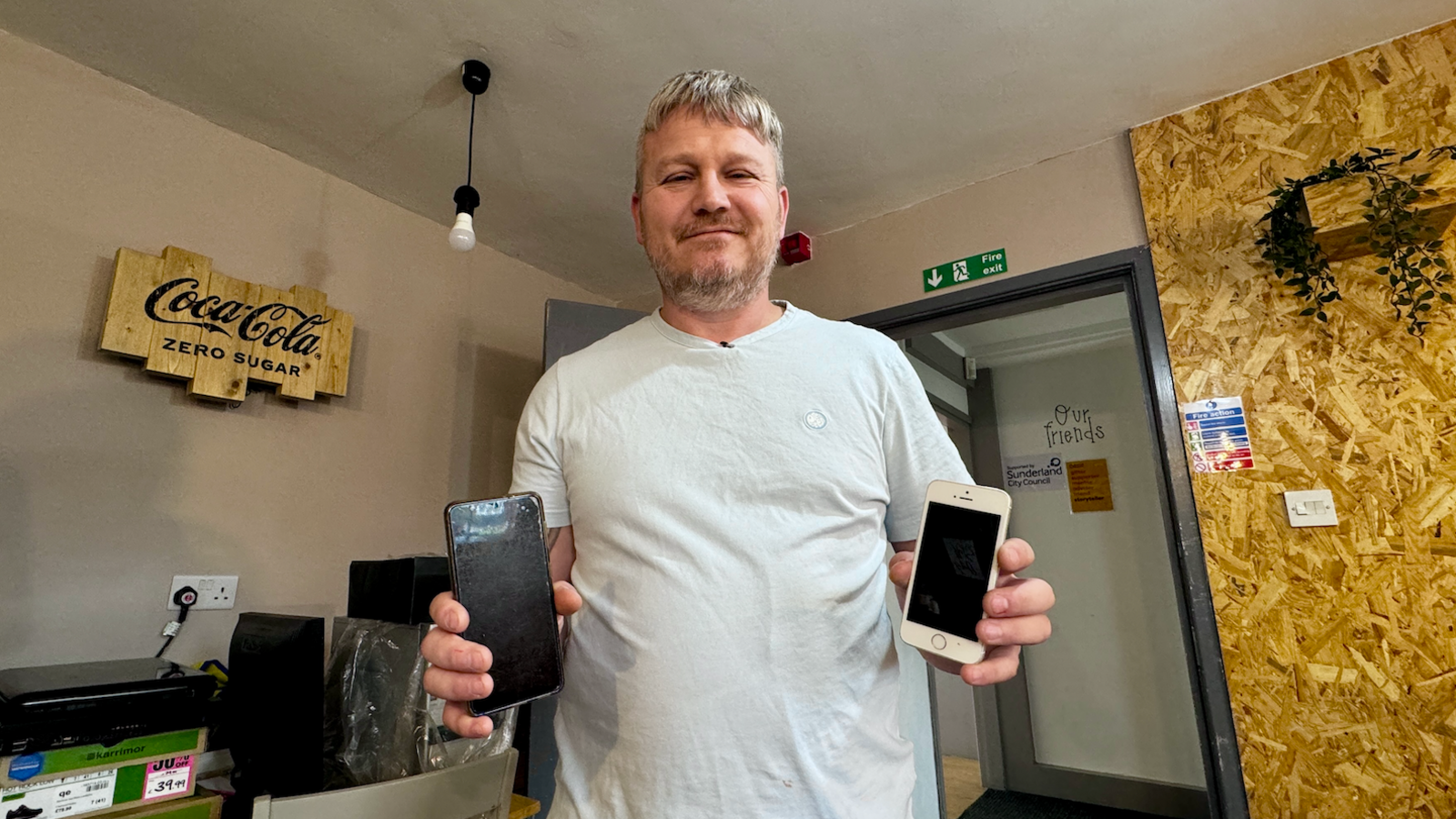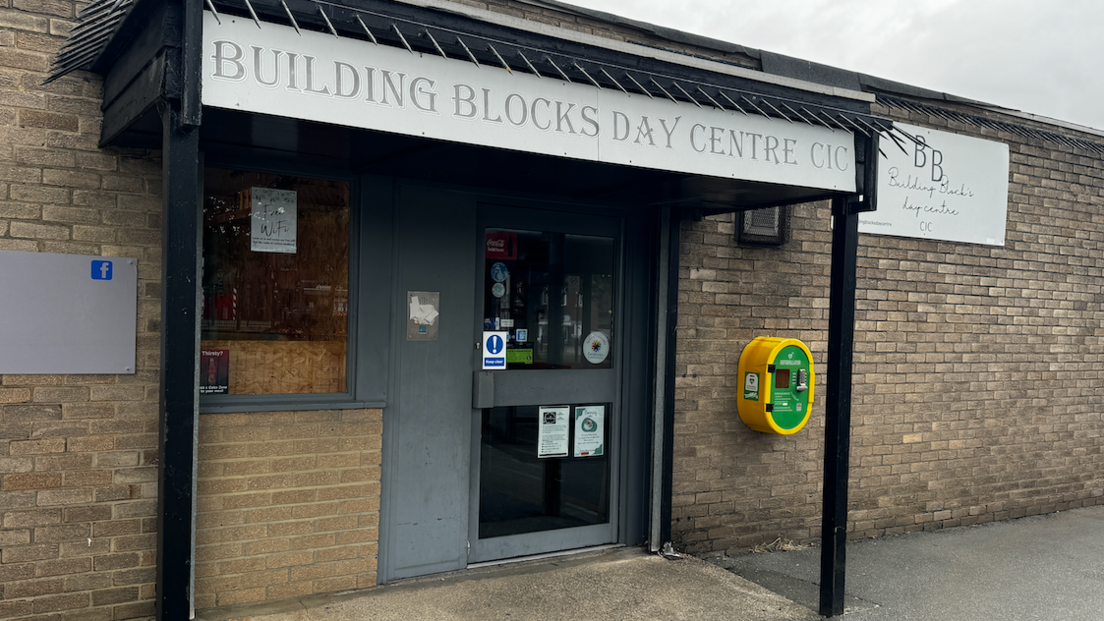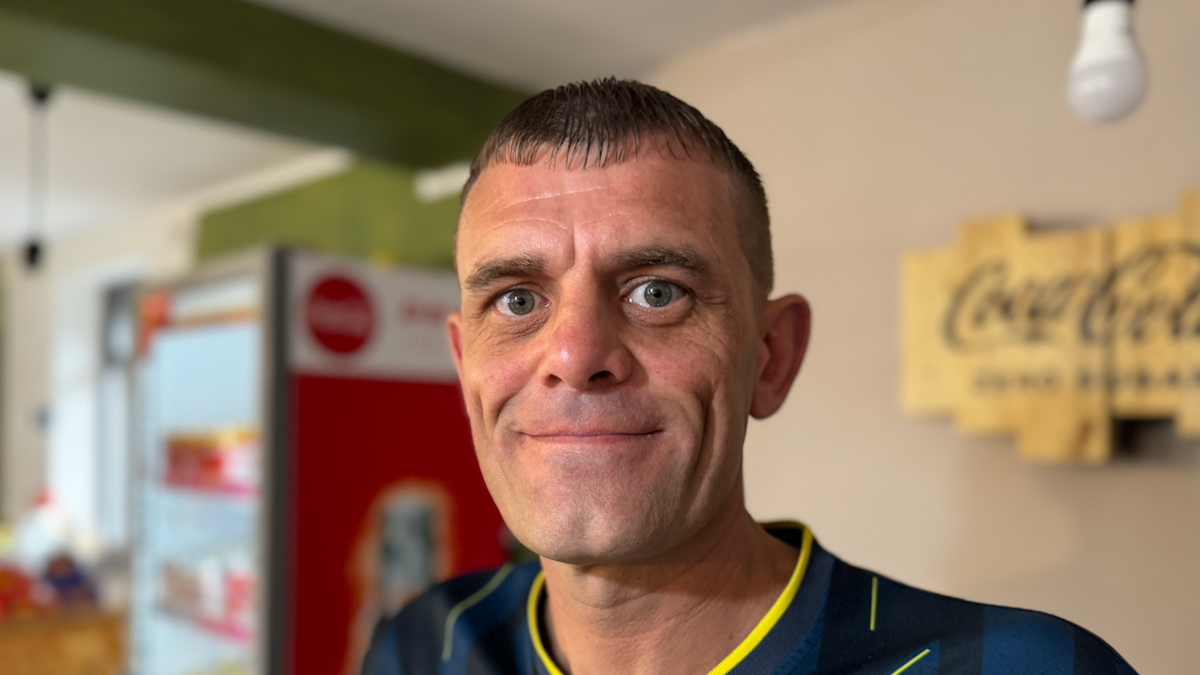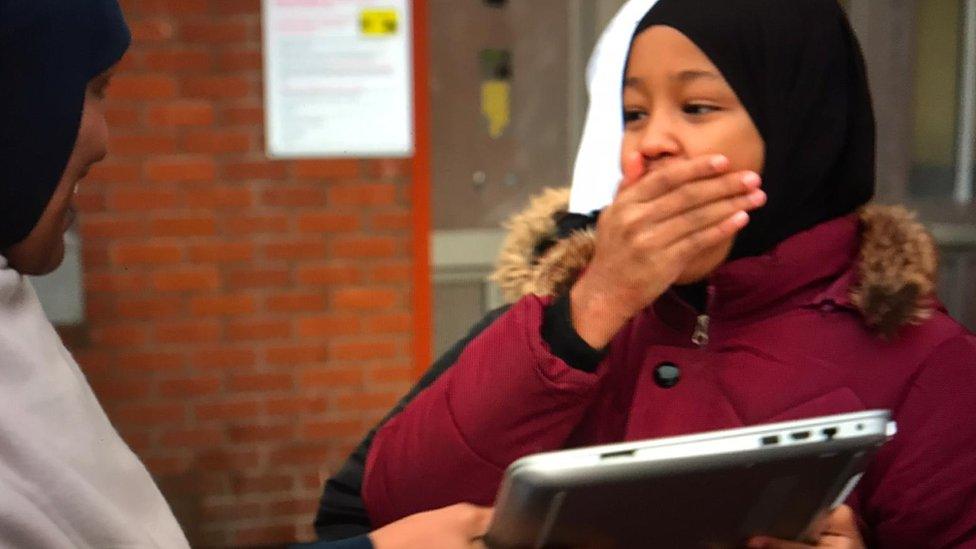Families 'struggling' without internet due to bills

Lee Nicholson is part of a council-led project that is redistributing donated devices to those in need
- Published
Families are facing "significant problems" because they do not have regular access to internet-enabled devices or technology at home, a charity boss has warned.
Lee Nicholson, who runs the Building Blocks Community Interest Charity in Washington, Sunderland, said he had seen a rise in those relying on help to get online, including benefit claimants.
"We find a lot of people are being sanctioned because they don't have access to the internet," he said.
The government said it was "unacceptable" some had a "lack of access to good connectivity" and that it was tackling digital exclusion, while Universal Credit claimants could seek support at Jobcentres.
Sunderland Council has set up drop-off points for people to donate unwanted phones, tablets and PCs, and is redistributing the devices to people most in need.
It comes as digital exclusion is affecting north-east England more than any other part of the country, according to figures from the Office for National Statistics, external.
They show the region has the highest amount (11.1%) of residents in England who do not use the internet, or have regular access, compared to London which has the lowest (4.9%).
Experts have previously warned of the impact, external a lack of access to internet and technology has on the region, saying there needs to be a "significant intervention".

The Building Blocks Day Centre in Concord is one of more than 20 of the council's technology drop-off points
"We get people in on a daily basis popping in, even to connect to wi-fi, to do their Universal Credit claims or a job search," Mr Nicholson told the BBC.
"If you can’t access Universal Credit to do your job searches, or [read] any messages, or if you miss anything, it's quite easy to be sanctioned now."
Others require technology to help pay bills on time and to avoid incurring additional fees, as well as to assist their children with their schoolwork.
'Warmth comes first'
Mr Nicholson said it was common for people from all backgrounds to cancel their phone and broadband services first when struggling to make ends meet.
"You don't see it as essential, food and warmth comes first before than anything - we see a lot of that."
Mr Nicholson's charity is part of a national databank, which allows his team to distribute free sim cards, loaded with minutes, texts and data.
"People are saying the relief they are getting is massive. It means they can go out and buy food or get the bus instead of walking four or five miles to be somewhere."

Albany resident David Chadwick has donated some items to help the cause
The Building Blocks Day Centre in Concord is one of more than 20 of the council's technology drop-off points.
It is holding sessions, external from August to October for residents to donate items, which will be erased of data and then refurbished by Sunderland-based tech firm, Born Good.
Resident David Cartwright said he wanted to do his bit for those who "cannot afford brand new stuff" by donating several items, which he hopes can be used by other parents to help their children access resources online for their homework.
'Great deal of poverty'
Alison Smith, the Labour-led council's corporate services and equalities portfolio holder, said there was "a great deal of digital poverty across Sunderland" which the council was trying to tackle.
She said: "One in three of our residents do not have access to good digital tech and they need it for all sort of things including health, to access services.
"It's really important the council supports that and provides the equipment they need."
Ms Smith added those who were in need of digital devices to take home should contact the council directly, or visit its headquarters at City Hall.
A government spokesperson said a lack of access to technology was "holding back communities and entrenching inequalities".
"This is unacceptable to this government and why we have made tackling digital exclusion in every corner of the country a priority."
They said the government was was working "closely" with charities and councils "at pace to improve lives by maximising the potential of science and technology for everyone".
Addressing concerns over Universal Credit, it said that Jobcentres continued to provide help for claimants who had "limited digital access", and they could seek support from their work coach.
Follow BBC Sunderland on X, external, Facebook, external, Nextdoor and Instagram, external. Send your story ideas to northeastandcumbria@bbc.co.uk.
- Published18 August 2024

- Published29 January 2021
